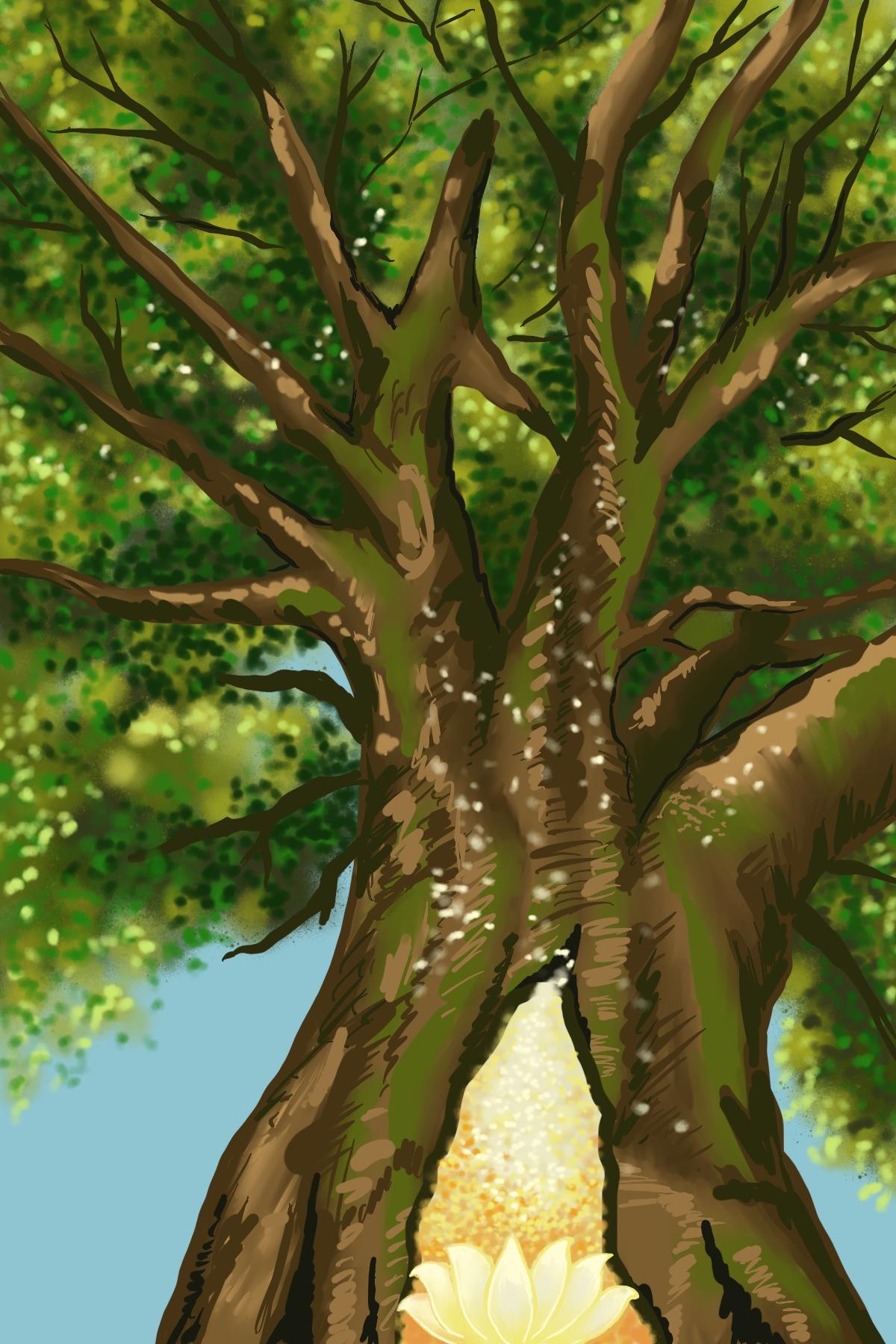What Is Mu?

IMAGE OF THE WEEK
We are grateful to Rupali Bhuva for offering this hand-made painting for this reading.

“What is mu?” By contemplating such zen koans, students sometimes have deep existential insights, and it was this question that I now asked myself. In the past, I had no idea what an appropriate answer might be, but now an answer was crystal clear.
I then asked myself about fifteen other koans, and discovered that the answers to about half of them were now obvious. How could that be? What could have happened that allowed me to see the answers to such questions so clearly?
While thinking about this issue, I happened to look at some trees beside the road. Suddenly, I realized something that was far more important than the answer to any koan. For the first time as an adult I understood the difference between what I had thought were trees and what trees actually are. In some mysterious way I had passed through the “gateless gate” described in Zen literature. An hour earlier, I had been a scientist and a businessman. Now I was a mystic. An hour earlier, my philosophical orientation had been secular. Now it was spiritual. An hour earlier, I had thought that the universe was essentially inanimate. Now I knew that it was alive, unified, intelligent, aware, and infinite. I also now suspected that nothing in the universe ever happens “by accident.”
I spent the rest of that day looking at the world in amazement. It was like a different planet. I called my wife, Carol, and told her that something unbelievable had happened, and I had no idea what might happen next. The world that had always seemed so predictable was now a dynamic mystery where anything could happen. The future had ceased to be interesting, and only the present moment held my attention.
When I initially arrived home, I made the first of several startling discoveries when our cat greeted me at the door. Looking into its eyes, I saw something looking back at me that I had never seen before. An intelligence, or depth-of-being, emanated from them. Our cat was no longer just a cat, and its well being mattered to me in some strange new way. We shared something intimate. The cat’s eyes were full of presence, and it was no longer just a dumb animal. In some weird way we were connected.
The second thing that caught my attention concerned the way I ate dinner. I got up from the table leaving my plate half full. My body was satisfied, so there was no longer any reason to continue eating. This was shocking because I had not responded to food in that manner since I was a young child. There was no liking or disliking of food; when the body had eaten a sufficient amount, it simply stopped eating. There was no longer any desire to eat as a pleasurable activity directed by an internal self.
The third thing that happened was the realization that material possessions had ceased to have any importance. That evening I suggested to Carol that we give away our home. She was shocked by this suggestion because it threatened her sense of security, but she concealed her feelings about this as I explained to her that we didn’t need our home. By giving it away, we could demonstrate to other people the emptiness of personal ownership. [...]
I sat down and wrote a letter to a Zen Master, the only human being in the world who I was familiar with who might understand what had happened to me.
Robert G. Harwood is an author, and retired builder. Excerpt from Pouring Concrete, A Zen Path to the Kingdom of God
SEED QUESTIONS FOR REFLECTION: What does passing through the gateless gate mean to you? Can you share a personal story of a time you woke up to see a living world? What helps you be in the world while being awake?